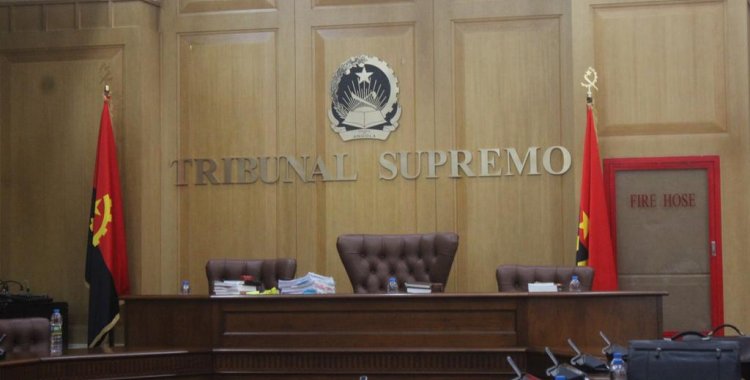Joel Leonardo raised the concern at the inauguration ceremony of the Court of Appeal in Luanda, where 31 judges will function, supported by 72 court officials, once the Organic Law on Courts of Appeal, scheduled for next week, is approved by the National Assembly.
"It is opportune to point out that, even so, it is urgent to increase the number of counselors for the Supreme Court, given that, due to the reduced number currently existing in the criminal chamber, 2398 appeal cases are stopped, and are awaiting their normal processing", said Joel Leonardo.
According to the presiding judge of the Supreme Court and the Superior Council of the Judiciary (CSMJ), currently each counselor judge of the criminal chamber of that court has about 450 cases, with a judge in each section judges on average a maximum of four to five cases.
"The thesis that the entry into operation of the Courts of Appeal will reduce the pendency of the Supreme Court is not true, but let's see, the judgment sessions at the Supreme Court take place every 15 days, so that, in a month, a counselor judge only judges eight to 10 cases, if the aforementioned counselor judge is not called to judge criminal cases of entities allegedly involved in criminal actions, judgments that can last around three months," he said.
Joel Leonardo also argued that the judicial year in Angola lasts for about nine months, which results in 72 cases per counselor judge in a judicial year, which multiplied by the current six counselor judges of the criminal chamber, on average, together, judge only one a total of 432 cases for each judicial year.
"After all, the current 2398 cases that are currently pending in the criminal chamber of the Supreme Court, will only know their final outcome at the end of 2027, without neglecting that, under the law, the Supreme Court will continue to receive appeals from the Courts of Relationship whenever they apply sentences of more than eight years of prison term," he noted.
The presiding judge of the Supreme Court concluded that "the 2398 citizens currently awaiting their appeals will remain in indefinite detention until the year 2027 or later".
According to Joel Leonardo, there are already physical spaces and "very advanced steps" have already been taken with the Ministry of Finance to cover expenses relating to the admission of the aforementioned councilor judges".
"Thus, if more counselor judges join, we will have the situation of the 2398 cases resolved within approximately two years, because we will redistribute them and the situation of our compatriots, who have been patiently waiting for many years in prison, will be safeguarded in this way. judgment of their appeals, sometimes with expired sentences", he stressed.
Joel Leonardo also welcomed "the good progress" with the Ministry of Finance of expedients aimed at minimizing the social and employment situation of magistrates and court officials.
The current Constitution of the Republic has been in force since 2010, continued Joel Leonardo, however, it was only from 2017 onwards that "concrete steps towards the materiality of the independence of the courts, the concrete autonomy of the CSMJ and, consequently, the effective separation of powers, were felt in the scope of the interdependence of functions, attributes of the form of democratic rule of law" that is emerging in the country.
"For the judiciary, the next steps include setting decent salaries for magistrates and court officials, implementing an integrated computer management system for the courts and a gigantic project to build uniform district buildings from Cabinda to to Cunene, and, for example, the building in the district of Buco Zau will have the same characteristics as the district of Tombwa, Cuango, Negaje or Gabela", he stressed.
With regard to digitization, Joel Leonardo referred that the annual growth of new cases in the country's courts, the lengthy service to citizens at the secretariats, the excess of formalism in notary offices and hearings "are still typical realities of a heavy judicial structure".
The presiding judge of the Supreme Court said that "very soon" the general vault of the courts will come into operation, "a lever of precious importance for improving the lives of magistrates, judicial officials and the general conditions of the courts".







